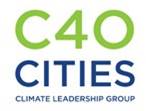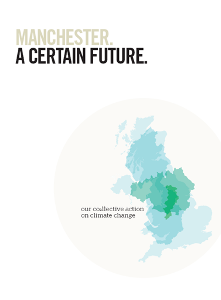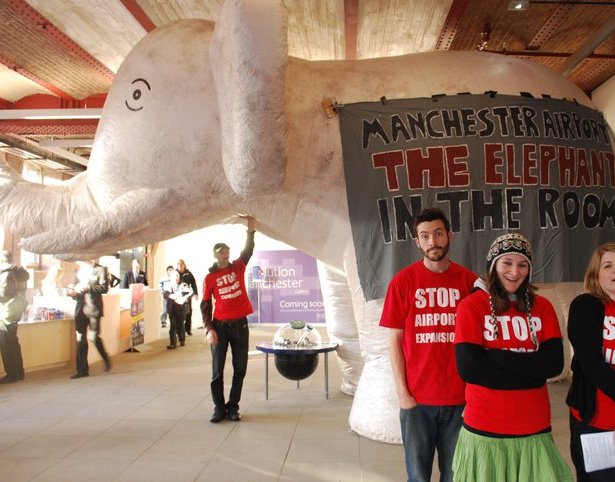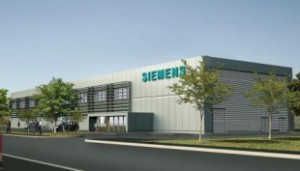A climate of exaggeration
Article published: Thursday, June 9th 2011
The leader of Manchester City Council was not present at the Town Hall for the first Executive meeting since the local elections which took place last Wednesday. A press release from the council excitedly explained that Sir Richard was away in Sao Paulo having been invited to the C40 climate summit. But what exactly does Manchester have to show off about?

Council leader Sir Richard Leese
The C40 is a group of the world’s biggest cities, also known as the Climate Leadership Group, attempting to tackle climate change. Over 70 per cent of global greenhouse gas emissions originate in cities, and urban areas – home now to more than half the world’s population – are also likely to feel the brunt of an increasingly unpredictable climate and extreme weather conditions.
More accurately though, C40 is a network of urban political and economic elites – working closely with the Clinton Climate Initiative – who have been trying to work out how cities can grow, stay competitive and dampen the risks to the endless profit-making cycle associated with an unprecedented environmental crisis. C40 leaders and their corporate partners realise there is a lot of money to be made out of a crisis like this, but climate change itself brings about a lot of uncertainty for investors.
 Manchester is not a member of the C40. It’s far too small a player both in influence and population size. According to ‘The Leader’s Blog’, Leese was invited “because of innovative work done in the city and wider city-region, not least the development of our climate change strategy”. The council’s own climate change action plan, Manchester – A Certain Future, was published in November 2009, and aims to reduce the city’s carbon emissions by 41 per cent by 2020.
Manchester is not a member of the C40. It’s far too small a player both in influence and population size. According to ‘The Leader’s Blog’, Leese was invited “because of innovative work done in the city and wider city-region, not least the development of our climate change strategy”. The council’s own climate change action plan, Manchester – A Certain Future, was published in November 2009, and aims to reduce the city’s carbon emissions by 41 per cent by 2020.
A climate fit for investment?
Though the council and Sir Richard like to talk up the groundbreaking nature of A Certain Future, the reality is that cities across the world have action plans similar to those of Manchester and Greater Manchester. A Certain Future is frankly nothing special. The main concern is that if they don’t adapt to climate change, Manchester and the city-region will become uncompetitive and fail to attract increasingly mobile capital – the central warning of the ‘Mini Stern’ for Greater Manchester and the North West.
Hence the wording of the council’s press release, describing the summit as a chance “to maximise opportunities to attract interest and investment in low carbon projects and technologies”. On his return Sir Richard’s optimistic blog post talked of “[l]ots of good contacts” – as well as the pleasure of “a more intimate conversation with President Clinton over lunch”.
The council leader spent much of his time in Sao Paulo attending seminars on creating jobs by attracting green industries and new technologies. But with a moderately successful ‘knowledge economy’ lying in an urban landscape marked more obviously by post-industrial decay and poverty, Manchester is not on the cusp of some technological or economic revolution.
News for instance that Siemens is creating 340 jobs at its new Renewable Energy Research Centre on Princess Parkway is hardly proof of an emerging low carbon economy on the back of some brilliant local strategy. This is more a case of one multinational looking to exploit a (potentially) lucrative market in green technology basing part of its operations in Manchester – and it’s a fairly isolated example. The city’s leaders may argue otherwise, but this is pretty much all A Certain Future is actually about, beyond lukewarm rhetoric about ‘energy efficiency’ and more trees.
Slow progress and unconvinced investors
So how far has the council got with its strategy? Back in November – one year after the launch – it transpired that just 126 organisations had even endorsed A Certain Future, and only two had produced delivery plans. One of those was the council itself; the other was Northwards Housing, which manages what’s left of council housing in the city. LED Christmas lights were referred to as “awareness translating into action” – quite literally the changing of light bulbs.
 In terms of concrete progress the council said it had reduced emissions by 5 per cent and was aiming to reach 10 per cent by April, but that’s just the council’s own operations – not the city as a whole. The report from the Green City Team, which would have confirmed whether this had been achieved, appears not to have even materialised among the chaos and local fallout of government cuts.
In terms of concrete progress the council said it had reduced emissions by 5 per cent and was aiming to reach 10 per cent by April, but that’s just the council’s own operations – not the city as a whole. The report from the Green City Team, which would have confirmed whether this had been achieved, appears not to have even materialised among the chaos and local fallout of government cuts.
In fact, the council’s press release about the C40 was pretty much the first we’ve heard about the action plan since November. Activity on the website has been minimal. It’s hardly surprising. There’s no money to implement it, while the whole thing is predicated on investment and growth in a broken economy.
This was summed up nicely yesterday when it was revealed that the housing developer Gleeson is trying to pull out of an agreement made with the council to provide a small number of newbuild houses in east Manchester with renewable energy supply. The deal – which it seems was vital in planning officers’ support for the scheme – was that one quarter of the 34 new houses to be built in Newton Heath were to receive a minimum of 10 per cent of their energy from renewable sources.
Despite its “continuing commitment to sustainable and ecologically responsible development” the Sheffield-based developer now wants to renege on this meagre offering. Gleeson told TheBusinessDesk.com that since the properties are to be sold to “local people who are on low incomes” the “addition of energy saving schemes, which often have a very long pay back period, would make the site unviable and we would not be able to carry out the development.”
Mention of integrating the council’s climate strategy in new regeneration ‘masterplans’ may now have become routine, such as in the Eastlands draft framework and the Airport City consultation document, but rarely is any explanation or qualification given of what it might mean in practical terms.
Perhaps it’s unfair to single Manchester City Council out. No one, it seems, is doing any better. According to the International Energy Agency, despite the worst recession in 80 years, global carbon emissions rose to record levels last year. Even the Confederation of British industry is complaining that the coalition is missing its targets in spectacular fashion, warning that “investor confidence remains low” and Britain is in danger of missing the boat on the low-carbon economy.
A weak council
These local failings are merely a display of how little influence the council really has over such issues, and how much local ‘progress’ depends on the whims of multinational investors. However, the council and its leaders never fail to play up Manchester’s revolutionary past and the city’s potential role as a world leader. Presented with something truly innovative and experimental though, the council immediately shies away.
Late last year in the run-up to the first annual stakeholder conference for A Certain Future, the head of the council’s Head of Environmental Strategy, Richard Sharland, committed to produce a report into the implications of a steady-state economy in Greater Manchester. It was believed that Manchester City Council would have been the first local authority in the UK to undertake such research. However, to all intents and purposes, it now looks like it’s been kicked into the long grass.

Environmental protestors at the stakeholder conference in November 2010
The work done by local environmentalist group ‘Call to Real Action’ was largely ignored in the process of producing the climate change action plan. The council continues preparing the expansion of Manchester Airport, and remains unwilling to engage in a serious discussion about emissions from planes – emissions controversially not included in A Certain Future.
If you search for ‘Manchester’ or ‘Richard Leese’ on the Sao Paulo summit’s website – or on that of the C40 or its blog – you come up with nothing. This city is not setting an example for the world. Some sharing of knowledge and ideas is clearly no bad thing. But most people who know anything about climate change see the necessity of a radical restructuring of contemporary society and the economy to avoid disaster. The continued game of cities desperately vying with each other for nominally green investment is simply lose-lose.
Andy Lockhart
More: Council, Environment, Features, Local economy
Comments
-
Good to see the Mule covering this issue.
(For me) the most useful ways of thinking about the council’s motives in trying to attract investment is to use David Harvey’s concept of a “Spatial Fix” – governments trying to attract and retain footloose (global) capital. Cities like Manchester and Leeds are trying to sell their post-industrial settings and green aspirations (or rhetoric – I’m not sure much of what’s talked up even rises to the level of aspiration) as a “sustainability fix” (the term is not mine, but by a couple of academics). All of this is, as you say, predicated on a growing economy and faith in technological fixes (the concept of “Ecological Modernisation” – see wikipedia).
I think we’d all agree, that the economic and political conditions – local, national and global – that existed in 2008-2009 are long gone. Now all that’s left are the documents, and the sounds of stealthy/unstealthy retreat (your Gleeson’s example).
IMAO, it’s at this point that local groups – functioning and reliable local groups – could at least *try* to make a difference. But they do not seem to exist. Asides from MCA (about which I’ve written quite enough), what about the Green Party? What about Friends of the Earth? What about all the various “Transition Towns” groups that seem to come with fanfair and go with nothing?
I hope the Mule steps up its coverage of this issue, and keeps it at the level of this article (though I do think you’re a little unfair re: using the absence of photos on the C40 blog as evidence!). Btw – there was another conference, almost certainly more useful, that I suspect no MCC people went to – the ICLEI one in much closer – in Bonn… http://resilient-cities.iclei.org/bonn2011/Still, the Council would probably say that the Ecocities Project (report due Nov 2011) has got that covered…
Comment by Marc Hudson on June 10, 2011 at 12:43 am -
Surely Leese means ex-president Clinton? If anyone thinks Manchester is or ever will be in any shape or form a ‘green’ sustainable city, they must be incapable of looking at the facts around them and the politicians they keep elelcting without any critical faculties whatsoever; in short, bonkers.
Comment by B. Roger on June 11, 2011 at 12:50 pm -
Maybe Clinton thought Leese was an intern?
Comment by Waste on June 11, 2011 at 8:00 pm -
There’s a mental image I didn’t need
Comment by Marc Hudson on June 12, 2011 at 12:42 am
-
[…] Manchester Mule have covered the story in more detail- it’s certainly worth a read. This entry was posted in Uncategorized. Bookmark the permalink. ← An appeal to better judgement […]
Pingback by Manchester City Council advising the world on climate change??? | Manchester Airport On Trial on June 14, 2011 at 5:54 pm -
I think the only reason Leese was invited was for Manchester to be used as an example of ‘how not to do it’. As it mentions in the article, “make cities grow” being the main criteria for the meeting. We cannot have continued growth and should be looking towards supporting small local initiatives such as ‘transition towns’. As for MGP (IMHO), the white, middle-class elite are too busy ensuring they maintain their comfortable life-styles.
Comment by Patrick Sudlow on July 6, 2011 at 7:39 pm
The comments are closed.




